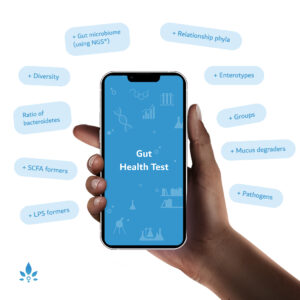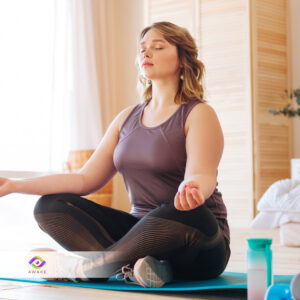Observing Ramadan During the Covid-19 Pandemic


The main religion of the Middle East and North Africa (MENA) is Islam. Ramadan is a time of reflection, prayer and fasting for Muslims. COVID-19 is going to affect the way that Muslims mark the Holy Month. A time that is traditionally steeped in cultural traditions and communities coming together to pray and socialise, Ramadan in 2020 is going to be a very different experience.
What changes can you expect to see and how can you ensure that your Ramadan maintains the core principles of prayer, reflection and fasting whilst staying safe and adhering to government guidelines?
2020 will go down in history as the year of COVID-19. Starting in China, the virus has swept across the planet, leaving barely a country or territory unaffected. Our day-to-day routines have been altered beyond recognition, with many countries implementing some form of social distancing. Of course this has taken time to adjust to; changing our behaviours, habits and norms for what, for many, remains an invisible enemy, has been challenging.
Prayer
Usually Ramadan is a time when mosque attendance increases. Unfortunately this year, in many locations, mosques have been closed in an attempt to reduce the spread of the virus. People are encouraged, where possible, to complete their prayers at home. All normal prayers in the day, and the more special prayers associated with Ramadan such as the late evening prayers (Taraweeh) and Eid al Fitr prayers, can be performed at home without a sermon. Families who live together can pray together, but larger congregations are not allowed.
Of course, prayer and mosque attendance are both of spiritual importance, particularly during the Holy Month; but it should also be considered that for many, the act of coming together in prayer is a social activity. Maintaining contact with friends, family and loved ones is as important now as ever, even if that contact has to be via video calls.
Community
On the topic of socialising, Ramadan has long been a time for family and friends to come together; to reflect and to pray, but also to break their fast together in the evening. With strict social distancing and active nightly curfews in some parts of the MENA region, the gatherings observed in previous years are not going to happen.
It is traditional in some parts of the Gulf region for children to participate in Garge’aan on the fifteenth night of Ramadan. Dressed in traditional dress, they visit their neighbours, and sing local songs in return for sweets and nuts. Depending on their age, some children may struggle to deal with the disappointment of not getting to partake in this ritual. Even for adults, it is another sign that times are different this year and can be difficult to accept from an emotional perspective.
Health
One of the biggest problems with COVID-19 to date is how little we really know about it. Scientists and doctors are working continuously to better understand the virus and to determine why some people are affected so much more severely than others.
Currently, there are people considered to be at higher risk, including the elderly, those with a history of respiratory disease and those with non-communicable diseases, such as diabetes type 2 and obesity. However, amongst the many unknowns with regards to this virus, is the impact of diet on susceptibility and prognosis; certainly, consuming a diet rich in vitamin C (found in many fruit and vegetables, including oranges, papaya, guava, bell peppers and broccoli) and vitamin D (found in oily fish, mushrooms and eggs) seems to exert some protective effects. However, fasting is a major part of the observation of Ramadan; and it remains to be seen whether varying food intake over a sustained time period is going to put people at higher risk due to reduced nutrient and fluid intake.
There are steps that can be taken to try and ensure a healthier fast, particularly during these uncertain times:
- Regular exercise. Fasting can cause a lack of energy and, over time, muscle weakness. Try to exercise indoors after breaking your fast (or outside if local policy allows it). This will not only help to maintain physical fitness, but also improve your emotional wellbeing.
- Those who are under a strict curfew may not be able to spend time outdoors. The sun is an excellent source of vitamin D and those who are spending significant amounts of time indoors are at greater risk of vitamin D deficiencies. If fasting, try to ensure that your main meal is rich in vitamin D containing foods.
- During the month of Ramadan it is normal for regular sleep patterns and routines to be disrupted. Later meals and evening prayers can disturb the normal circadian rhythm, which can have a negative effect on the immune system. Maintaining a strong immune system is essential in the fight against COVID-19. Eat well when you can and try to ensure you still get sufficient sleep to maximise the health of your immune system, even during periods of fasting.
- Look after your mental health. This article has already alluded to it, but an inability to do what you would normally do during the weeks ahead; such as partake in rituals, share food with neighbours, play games and break your fast with close friends and family; can all be highly detrimental to your state of mind. Adhering to strict social distancing rules is difficult and is a particularly big ask during the month of Ramadan. Seek help and support if you need it during these weeks. Video calls may not be the same as being with people, but they are a compromise and might be the start of new traditions and routines in years to come.
In practical terms, not all Muslims are able to fast. Consideration is always given to those who are pregnant, or have underlying health issues. This year, frontline medical workers are also exempt from fasting if it is considered that they will weaken their immune system, or compromise their ability to treat patients. Those who have tested positive for SARS CoV-2, the virus responsible for COVID-19, are also exempt if their symptoms would make it difficult to fast.
Ramadan in 2020 is going to be a restrained affair; a time of quiet contemplation and modest iftars, rather than extravagant socialising. Whilst change is always challenging and deviating from long-help practices and traditions is hard, the fundamental principles of Ramadan still remain. Those observing the Holy Month can use the time to reflect, to give thanks for all that they have and offer up Zakat for those in need.
Nabta wishes all our readers a blessed, healthy Holy Month. Ramadan Mubarak.












































